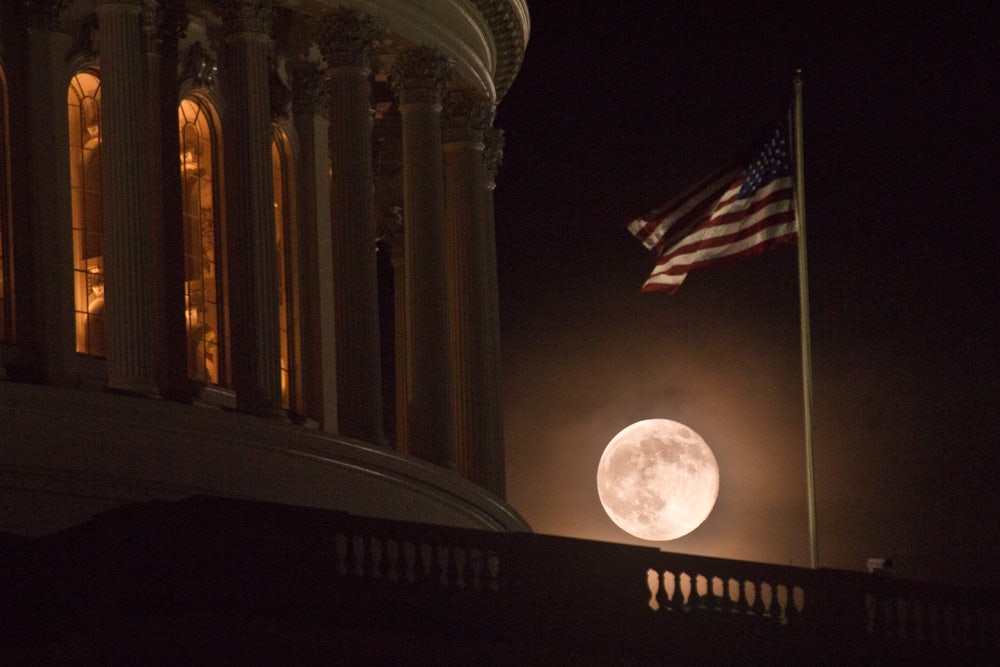You’ve argued that Mars isn’t the right strategy. Why?
All of us are excited about getting to Mars someday. But there’s a lot we don’t know—the impact of radiation exposure, how humans can work in low gravity. We already know space causes serious health problems: vision impairment and bone loss and things we don’t even know about yet. There’s so much more we need to learn, and we can learn it closer to home: on the moon.
There’s also a geopolitical element, right?
Several nations are interested in the moon: Russia, Japan, China, India, parts of Europe. We don’t want to look down from lunar orbit and watch other countries setting up camp on the surface while we go around and around. Let’s make sure we didn’t make a mistake by leaving a lunar settlement out of the picture.
So we’ve got some serious international competition?
Yes, but it’s also an opportunity for cooperation. You can share the costs, share the risks. It’s good for diplomacy, as we’ve learned from working with the Russians. Congress almost killed the original space station plan, and Bill Clinton resurrected it by pulling together international partners. When I was in the White House in 1998, Russia launched the first space station module using U.S. money, because Russia was short on cash back then.

It’s hard to imagine such cooperation with Russia today.
True. But we’ve depended on Russia to transport our astronauts to the space station since George W. Bush canceled the space shuttle program. Our astronauts have had very good relationships with Russian cosmonauts. Sometimes that mutual respect and affection can really help you when tensions between countries are high. When it comes to our relations with China, tensions might be eased by finding ways to cooperate on space missions.
Why go back to the moon—let alone to Mars—when there are so many problems here on Earth?
The space program is a symbol of what America is all about: the willingness to explore, to take risks, to understand the universe. Plus, there are terrific commercial opportunities: satellites for communication and navigation, or mining precious ores on asteroids. Space should be one of our highest priorities—but no president since Kennedy has really put space at the very top of the list.
What about private companies like SpaceX and Blue Origin?
Elon Musk has said his Mars plan will require a huge public-private partnership. Some companies will want to offer services to the government for quite a lot of money, and some may also make money through things like space tourism. There are companies that offer to transport the ashes of loved ones to space!
Do you want to do that?
I want my ashes to be spread over the Hawaiian ocean.
We won’t be seeing NASA do things like space ashes, I hope.
I just want the next president to understand the importance of science. When there are big partisan fights, science often gets lost in the shuffle. But NASA’s contributions have really been extraordinary: astronomy, planetary science, the work of the Jet Propulsion Laboratory and the Goddard Space Flight Center. Whatever NASA winds up exploring next, it can’t be allowed to erode the scientific mission. If you lose the science, the rest frankly doesn’t matter.
